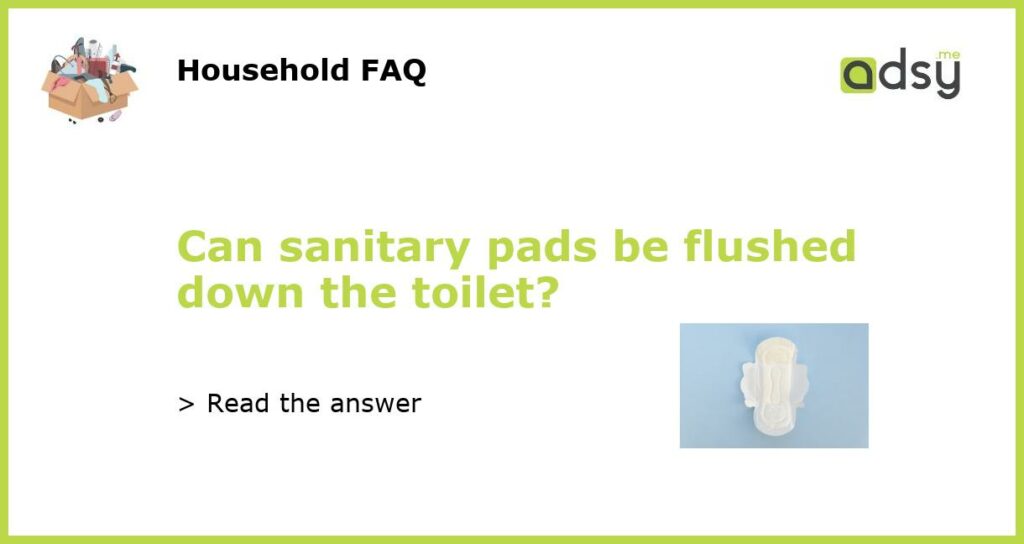Can Sanitary Pads Be Flushed Down the Toilet?
There has been much debate and confusion surrounding the question of whether sanitary pads can be flushed down the toilet. While it may seem convenient to dispose of them in this manner, doing so can have detrimental effects on the plumbing system and the environment. In this article, we will explore why it is not advisable to flush sanitary pads down the toilet and discuss alternative methods of disposal.
1. The Impact on Plumbing Systems and Sewers
Flushing sanitary pads down the toilet can lead to significant damage to plumbing systems and sewers. Sanitary pads are not designed to break down in water like toilet paper. Therefore, they can easily clog pipes and cause blockages. Over time, these blockages can lead to costly repairs and even result in a complete system failure. Clogged pipes can also impact the overall functioning of the sewage system, causing backups and potential health hazards. It is crucial to remember that toilets are only designed for human waste and toilet paper.
2. Environmental Consequences
In addition to the risks posed to plumbing systems, flushing sanitary pads down the toilet also has severe environmental consequences. Sanitary pads are typically made from a combination of plastic and organic materials. When these materials enter the water system, they can take years to break down, leading to pollution in our oceans, rivers, and other bodies of water. This pollution not only harms aquatic life but also has a significant impact on the overall ecosystem. Therefore, it is essential to dispose of sanitary pads in a way that is environmentally responsible.
3. Proper Disposal of Sanitary Pads
Instead of flushing sanitary pads down the toilet, it is recommended to dispose of them in a more suitable manner. When it comes to sanitary pads, the best method of disposal is through wrapping them in toilet paper or tissue and then placing them in a lined trash bin. This ensures that they are hygienically contained and properly disposed of in the appropriate waste management facilities. Additionally, there are specialized bags available that are designed for the disposal of sanitary products. These bags seal in any odors and can easily be disposed of in the regular trash.
4. Education and Awareness
One of the most effective ways to minimize the improper disposal of sanitary pads is through education and awareness. It is crucial to educate individuals about the potential consequences of flushing sanitary pads down the toilet and provide clear information on proper disposal methods. This education can be done through public awareness campaigns, school programs, and informative resources available online. By increasing awareness about the impacts of improper disposal, we can encourage responsible behavior and help protect both plumbing systems and the environment.
5. Alternatives to Disposable Pads
Another aspect worth considering is the use of alternatives to disposable pads. Menstrual products such as menstrual cups and reusable cloth pads have gained popularity in recent years due to their eco-friendly nature and cost-effectiveness. Menstrual cups are made from medical-grade silicone and can be reused for several years, reducing waste significantly compared to disposable pads. Reusable cloth pads are also available in various designs and can be washed and reused, making them a sustainable option. By exploring these alternatives, individuals can not only reduce their environmental impact but also save money in the long run.
In conclusion, it is not advisable to flush sanitary pads down the toilet due to the potential damage to plumbing systems and the environment. Proper disposal methods, such as wrapping sanitary pads in toilet paper and placing them in a lined trash bin or using specialized disposal bags, should be followed. Education and awareness about the consequences of improper disposal are crucial in promoting responsible behavior. Additionally, considering alternatives to disposable pads, such as menstrual cups and reusable cloth pads, can further reduce waste and environmental impact. By taking these steps, we can all contribute to a cleaner and more sustainable future.






